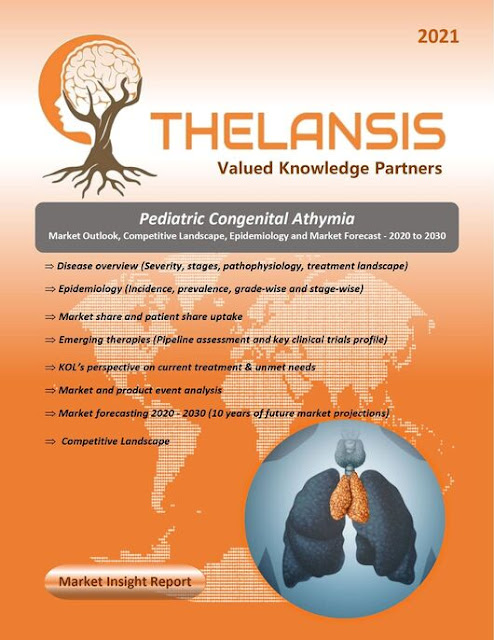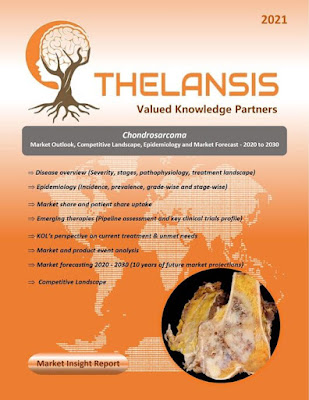Pediatric Congenital Athymia – Market outlook, Epidemiology, Competitive Landscape and Market Forecast Report – 2020 To 2030
Pediatric congenital athymia
is an ultra-rare immune disorder in which a child is born without a thymus—an
organ that plays a critical role in helping the body learn to fight off
infections. Multiple genetic abnormalities, congenital syndromes, and
environmental factors are being associated, and the care of these infants is
complex. While 22q11.2 deletion-associated with DiGeorge Syndrome (DGS) is the
most common genetic defect associated with congenital athymia. FOXN1, PAX1, and
others have also been identified as potentially causative. Children with
congenital athymia may have repeated, often life-threatening infections because
they don’t have enough working T cells (infection-fighting white blood cells)
to fight them off. It’s important to know that these infections can be fatal.
The competitive
landscape of Pediatric Congenital Athymia includes country-specific approved and
pipeline therapies. Any asset/product-specific designation or review and
Accelerated Approval are tracked and supplemented with analyst commentary.
KOLs insights of Pediatric
Congenital Athymia across 8 MM market from the centre of Excellence/ Public/
Private hospitals participated in the study. Insights around current treatment
landscape, epidemiology, clinical characteristics, future treatment paradigm,
and Unmet needs.
Pediatric
Congenital Athymia Market
Forecast: Patient Based Forecast Model (MS. Excel Based Automated
Dashboard) which Data Inputs with sourcing, Market Event, and Product Event,
Country specific Forecast Model, Market uptake and patient share uptake,
Attribute Analysis, Analog Analysis, Disease burden, and pricing scenario,
Summary, and Insights.
S. No Asset Company Stage
1 RETHYMIC® Enzyvant Phase 2/3


Comments
Post a Comment